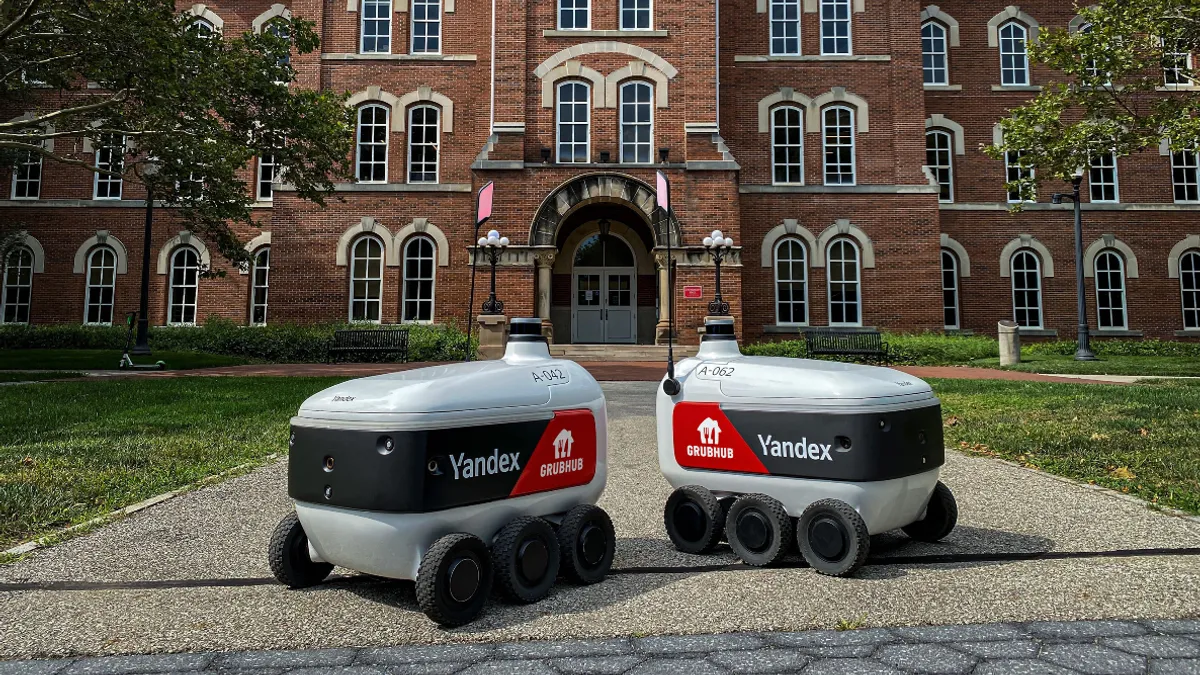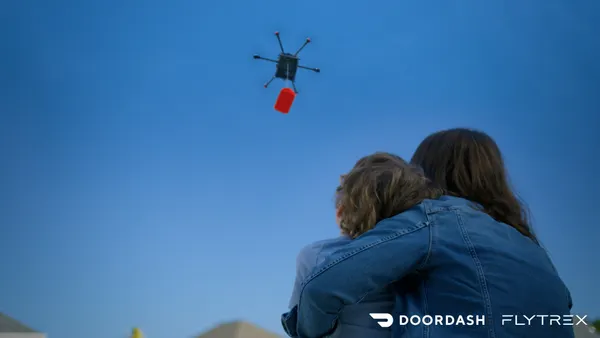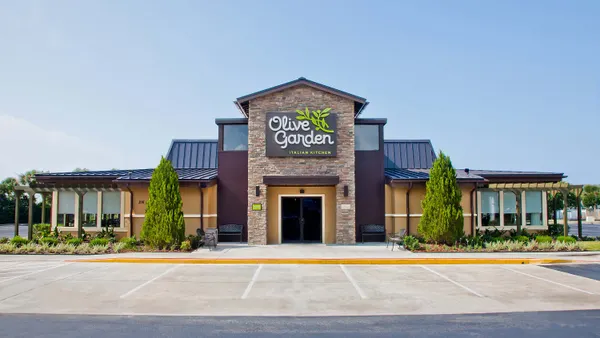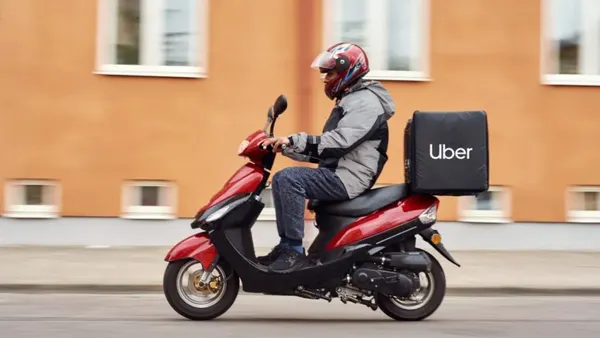UPDATE: Aug. 19, 2021: Grubhub and Yandex Self Driving Group are deploying 50 delivery bots to The Ohio State University campus. This marks the first college campus Yandex is operating at as part of a partnership to provide delivery of on-campus food to students, according to a press release. Over 60,000 students will be able to order food through Grubhub's app and have it delivered via bot between 9 a.m. and 9 p.m. seven days a week. Students can request delivery to every residence hall on campus in addition to Thompson Library and Bricker Hall.
Dive Brief:
- Grubhub has partnered with autonomous vehicle developer Yandex Self-Driving Group for robot delivery, according to a press release. The initial rollout will be at select college campuses starting in the fall.
- The delivery robots will use Yandex's proprietary self-driving technologies, such as autonomous navigation of pavements, pedestrian areas and crosswalks, to reach areas on campuses not accessible by cars.
- Grubhub, which currently partners with 250-plus college campuses, has increasingly focused on college students since it acquired Tapingo, which delivers to college students, in 2018. It also added free Grubhub+ memberships to students enrolled in campus dining at its participating colleges in 2020.
Dive Insight:
Offering robot delivery across college campuses will help Grubhub reach more students, which have the ability to integrate their meal plans directly into a Grubhub account to access restaurants both on- and off-campus for delivery or pickup. Targeting younger consumers could also build loyalty for Grubhub over time, especially if the company becomes a students' go-to for food delivery service.
Yandex's rovers would be able to operate during the day and night, navigate in average snow and rain, navigate autonomously between pickup and dropoff locations and use regulated and unregulated crosswalks. These rovers can also carry up to 44 pounds of goods, according to The Wall Street Journal, which could provide an easier way to deliver multiple orders to students in one trip. Students will be able to access their orders by using the Grubhub app to open the rover. Once the student closes the hatch after receiving their order, the rover continues to deliver its next order.
Rovers also make small order delivery, which can add up quickly if a diner just wants a snack versus a full meal, more cost-effective. Food delivery companies often add additional fees for orders under $10, and couriers tend to shy away from these orders as well.
While Yandex is new to the U.S. market, it has delivered thousands of orders from restaurants and grocery stores in Russia since late 2020, according to a press release. It has been delivering orders from local restaurants in Ann Arbor, Michigan, since April.
Colleges are increasingly becoming testing grounds for autonomous delivery robots since they typically offer more well-maintained routes and because private college grounds require less regulation than public sidewalks. This trend became particularly common during the pandemic, and over one dozen college campuses were working with various robot delivery providers at the start of 2021. In 2019, autonomous robot company Starship Technologies set a goal to expand to 100 U.S. college campuses by 2022.
Universities are just a starting point. Brands are beginning to partner with food delivery bots to help lower the cost of delivery, too. Earlier this year, Chick-fil-A partnered with Kiwibot to deliver from a handful of locations in Santa Monica, California. These bots can deliver up to one mile away from a business and take an average of 30 minutes to complete, with a typical order costing $1.99. Pizza Hut also tested FedEx delivery bots in 2019.
Correction: A previous version of this article misstated how many campuses Grubhub will deploy autonomous robot delivery. Grubhub's initial rollout will be at select college campuses starting in the fall.















